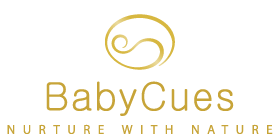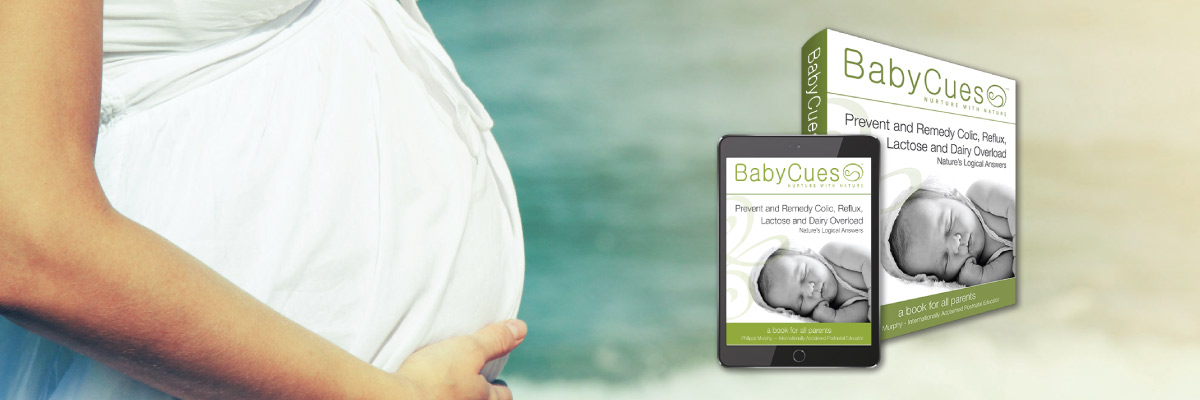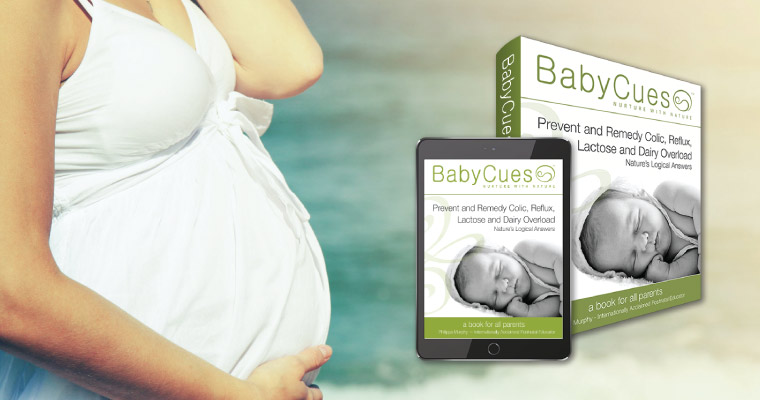Why pacifiers are a wise choice for newborns

When I first chat to parents that inquire about my services I ask the question, do you use a pacifier? The response is often a sheepish reply of ‘yes’, followed by a ‘but’ and a justification of use. Then I hear a very slight sigh of relief, and sometimes surprise when I tell them that I actually advocate the use of pacifiers when parents are taught how to use them beneficially.
I never used to. Like many I found pacifiers disgusting and felt they were only an instrument that stops us responding fully to a baby. Then I worked with a family that wanted to use them, and I completely changed my mind. The twin boys were happier, calmer and the family wasn't so tired from continuous walking to sooth. This started me on a journey of exploration. I began observing newborns with pacifiers, playing with them to see what worked best for the baby, and so learnt their different sucking cues. Along with this I researched newborn digestion, and slowly my disgust turned to acceptance. To an absolute knowing that by offering a pacifier, I was actually responding fully to a newborns natural emotional and biological needs.
Get the help you need
Hailed as a game changer, life-saver and a must read from parents and postnatal professionals, this self-help book truly has the answers that NATURALLY prevent and heal the symptoms of colic, reflux, silent reflux, the witching hour and lactose and dairy overload - aka Digestive Overload, the true cause of these symptoms.
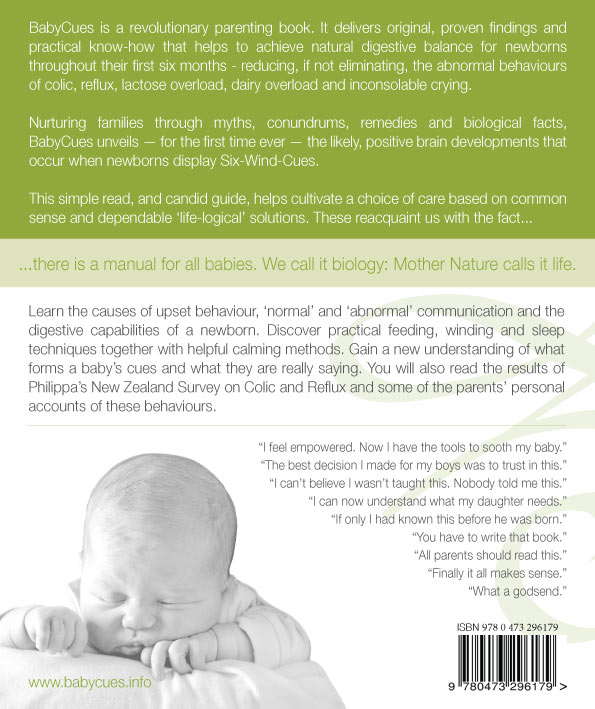
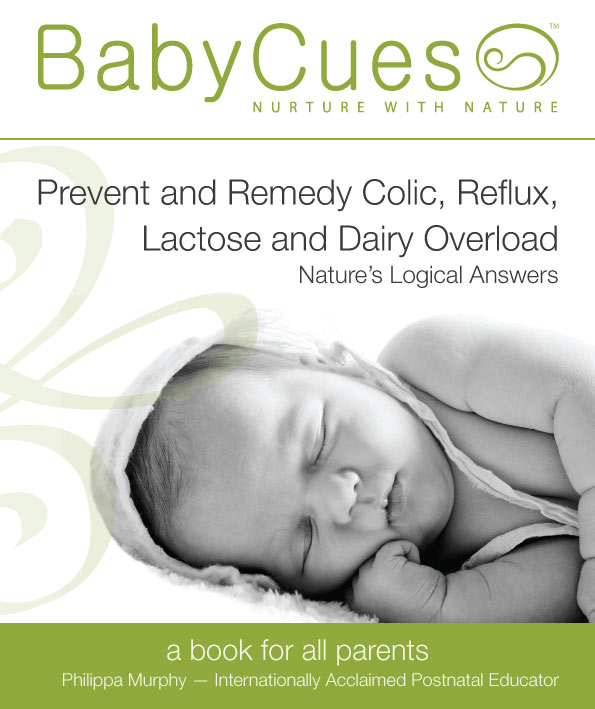
- nurture your child's digestive system
- Burp your baby to comfort
- Understand their Six-Wind-Cues
- Calm baby with techniques that work


LEARN HOW TO
- nurture your child's digestive system
- Burp your baby to comfort
- Understand their Six-Wind-Cues
- Calm baby with techniques that work
Digestive enzymes via saliva
Saliva is one of the first digestive instruments for all human beings and research shows that many of the lingual enzymes are a newborn’s natural digestive medicine. Lingual lipase plays a significant role in digesting fat for newborns. At around six months the lipase enzyme will be excreted from the pancreas — as it is for adults — but initially this enzyme is physiologically produced in very minimal levels by the pancreas.
Newborns also obtain lipase through the hind milk when breast fed. However, often the amount of lipase gained this way is compromised through unbalanced feeding practices. It is also reported that the lipase in breast milk does not activate until it mixes with stomach juices, whereas lingual lipase begins the digestive process in the mouth, assisting also in the stomach.
When a baby doesn't receive enough lipase, undigested fat globules abnormally pass through the intestines causing huge amounts of discomfort. This leads to behaviours like arching backwards, pedaling legs, bopping on and off the breast when feeding, and makes a baby look like they are hungry as they root to suck for comfort rather than food.
On the other hand, there is the lingual amylase enzyme which takes care of carbohydrate by breaking it down into simpler sugars for easier digestion in the small intestine. Again, this is a necessary component of digestion for newborns. It is present in amniotic fluid, breast milk, saliva and, later on in life, is also produced in significant amounts by the pancreas.
Saliva, a baby's natural medicine for health, also holds the lysozyme enzyme. One of the immune system’s defenses against bacteria which has anti-inflammatory properties.
Sucking for digestive comfort
Newborns want to suck and begin to root whenever they feel discomfort or know they are about to. This includes movements in the digestive tract that bring them pain, whether by wind or waste. Instinctively they know sucking relaxes them and biologically we know that always providing sucking with food potentially overloads their system. So, by offering a baby their innate gift of sucking away from food, just as they did in the womb, we prevent overload and help them relax. This decreases the stress hormone cortisol and diminishes tension in their body, thus allowing the necessary movement in their digestive tract or stomach to happen in a more relaxed manner.
Minimises some breastfeeding issues
By offering a pacifier instead of the breast when baby is upset, mothers regulate supply in accordance with their baby’s digestive capabilities which maintains healthy digestive function. They also reduce the chance of getting engorged, or sore nipples, and an oversupply.
Mother Nature gifted our babies their own pacifier at conception – sucking there thumb. By offering a pacifier we only extend this gift and provide them nature’s wonderful digestive medicine. Really, where is the harm in that? Especially if parents are taught how to use a pacifier correctly.
Philippa teaches parents the best way to use pacifiers within their baby's natural cycle of digestive movement and cues. She calls this cycle Nature's Wind Sequence, which you can find more information on in her BabyCues Prevent and Remedy Book.

